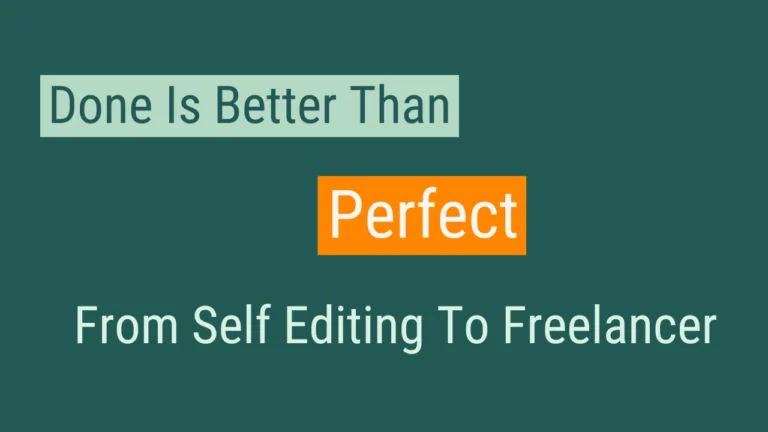
Level Up Your Freelance Game: Business Skills for Podcast Editors
Hey everybody! So you’re killing it with your podcast editing skills, huh? That’s awesome! But let’s be real, there’s more to this freelancing thing than just making podcasts sound amazing. If you wanna ditch the day job and go full-time freelance, you gotta have some business savvy too.
Think of it like this: you’re a one-person show now. You’re not just the editor; you’re the CEO, the marketing team, the accountant, the whole shebang!
Don’t worry, though, I’m not here to scare you off. In this article, we’ll break down the essential business skills you need to thrive as a freelance podcast editor or manager.
Let’s get down to business! 👇
1. Money Matters: Get Your Finances in Order 💰
Okay, I know talking about finances can be about as exciting as watching paint dry, but trust me, this is important stuff. If you want your freelance business to last, you gotta have a handle on your money.
Here’s the deal:
- Budget Like a Boss: Create a budget so you know where your money is going. It doesn’t have to be fancy – just a simple plan for your income and expenses. Think of it like planning a road trip. You gotta know how much gas money you have, right?
- Track Your Cash Flow: Keep tabs on your income and expenses. This is like checking your speedometer – you need to know how fast your business is going (and if you need to hit the brakes!). There are some cool apps out there that can help with this, like QuickBooks or FreshBooks.
- Taxes? Ugh, Taxes: Yeah, unfortunately, they’re not just for employees. Set aside money for taxes throughout the year so you don’t get hit with a huge bill come April. Nobody likes surprises like that!
- Emergency Fund = Peace of Mind: Freelancing can be unpredictable. It’s a good idea to have some savings tucked away for a rainy day (or a dry spell with no clients!).
- Don’t Put All Your Eggs in One Basket: Diversify your income. Maybe offer some coaching or consulting services alongside your editing gigs. That way, if one area slows down, you’ve got other options.
- Keep It Separate: Have a separate bank account for your business. This makes it way easier to track your income and expenses (and it keeps things nice and tidy for tax time).
- Price It Right: Don’t undersell yourself! Make sure you’re charging rates that reflect your skills and experience. Remember, you’re providing a valuable service!
- Plan for the Future: Retirement might seem like a lifetime away, but it’s never too early to start saving. Look into options like a Roth IRA or a Traditional IRA.
I know this might seem like a lot, but trust me, getting a grip on your finances will make your freelance journey a whole lot smoother.
Now, let’s move on to something a bit more fun… marketing!
2. Market Yourself Like a Pro: Get Those Clients Rolling In! 📢
Alright, now for the fun part! Marketing is all about getting your name out there and showing potential clients why they should choose you to edit their podcasts.
Here’s the lowdown:
- Find Your Niche: What kind of podcasts are you most passionate about editing? Maybe it’s true crime, or maybe it’s business podcasts. Focusing on a specific niche can help you attract the right clients.
- Website = Your Online Home: You gotta have a website! This is where you showcase your skills, your experience, and what makes you unique. Make sure it looks professional and is easy to navigate. (And don’t forget to include a way for people to contact you!)
- Social Media Savvy: Use social media to connect with potential clients and other podcasters. Share your work, engage in conversations, and be yourself! Authenticity is key.
- Content is King: Create valuable content that shows off your expertise. This could be blog posts, videos, or even your own podcast! Sharing your knowledge helps you build credibility and attract clients.
- Email Marketing Magic: Build an email list and send out regular newsletters. This is a great way to stay top-of-mind with potential clients and keep them updated on your services.
- Online Presence = Professionalism: Make sure your online presence is polished and professional. This includes your website, social media profiles, and any online directories you’re listed in.
- Testimonials = Social Proof: Happy clients? Ask them for testimonials! These are like gold when it comes to attracting new clients. People love to see what others have to say about your work.
- Referrals = Free Marketing: Don’t be afraid to ask for referrals! Your clients might know other podcasters who need your services.
- Connect with the Bigwigs: Network with industry influencers and other podcast professionals. You never know what opportunities might come from these connections.
Marketing is an ongoing process, so don’t get discouraged if you don’t see results overnight. Just keep at it, and you’ll start to see your client base grow.
3. Networking: It’s Not Just What You Know, It’s Who You Know 🤝
Alright, let’s talk about networking. This is all about building relationships with other people in the podcasting world. You never know who might be able to help you out, or who you might be able to help!
Here’s the deal:
- Get Out There: Attend industry events, conferences, and workshops. These are great places to meet potential clients, collaborators, and mentors.
- Online Communities are Your Friend: Join online forums and social media groups related to podcasting. Engage in conversations, share your knowledge, and connect with other professionals.
- Team Up: Collaborate with other freelancers or businesses on projects. This can help you expand your skills and reach a wider audience.
- Follow Up: After meeting someone new, follow up with an email or message. This helps you stay on their radar.
- Tap into Your Existing Network: Don’t forget about your friends, family, and former colleagues! They might know someone who needs a podcast editor.
- Be a Connector: Introduce people in your network who might be able to help each other. This is a great way to build goodwill and strengthen your relationships.
- Nurture Those Relationships: Building a strong network takes time and effort. Stay in touch with your contacts, offer support, and be genuinely interested in what they’re doing.
- Mentorship is a Two-Way Street: Consider finding a mentor who can guide you, and be open to mentoring others as well.
- Show Your Appreciation: Always thank people for their help and support. A little gratitude goes a long way.
Networking is all about building genuine connections. Don’t just focus on what you can get out of it; focus on how you can help others.
4. Contract Negotiation: Get What You’re Worth 📝
Okay, let’s talk about contracts. This might seem intimidating, but it’s an important part of freelancing. A good contract protects both you and your client.
Here’s the thing:
- Know Your Value: Do your research and find out what other podcast editors are charging. Don’t undersell yourself! Your skills and experience are valuable.
- Be Prepared: Before you start negotiating, gather information about the client and their podcast. This will help you tailor your pitch and address their specific needs.
- Focus on the Benefits: Explain to the client how your services will benefit them. Will you help them save time? Improve their audio quality? Grow their audience?
- Listen Up: Pay attention to what the client is saying. Understand their concerns and be willing to compromise.
- Find the Win-Win: Negotiation is about finding a solution that works for both you and the client. Be flexible and open to different options.
Negotiating contracts can take practice, but it gets easier over time. Remember, you’re running a business, and you deserve to be compensated fairly for your work.
5. Project Management: Stay Organized and On Track 📅
Alright, let’s talk about project management. When you’re juggling multiple clients and projects, things can get chaotic if you’re not organized.
Here’s how to stay on top of things:
- Plan It Out: For each project, create a plan that outlines the scope of work, deadlines, and deliverables.
- Tech Tools to the Rescue: Use project management software to help you stay organized. There are tons of options out there, like Trello, Asana, and Basecamp.
- Be Realistic: Don’t overcommit yourself! Be honest about how much work you can handle and how long it will take you to complete each project.
- Communication is Key: Keep your clients updated on your progress. Let them know if you encounter any challenges or if there are any changes to the timeline.
- Always Be Learning: Reflect on your project management process and look for ways to improve.
Good project management skills will help you deliver high-quality work on time and keep your clients happy.
6. Time Management and Productivity: Work Smarter, Not Harder ⏰
Time is your most valuable asset as a freelancer. You gotta use it wisely!
Here are some tips to boost your productivity:
- Prioritize Like a Pro: Figure out which tasks are most important and tackle those first.
- Stick to a Schedule: Create a daily or weekly schedule and stick to it as much as possible. This will help you stay focused and avoid distractions.
- Ditch the Distractions: Find a quiet workspace where you can concentrate. Turn off your phone or put it on “Do Not Disturb” mode.
- Set Boundaries: Let your clients know your working hours and stick to them. Don’t be afraid to say “no” to new projects if you’re already feeling overwhelmed.
- Use Productivity Tools: There are tons of apps and tools that can help you manage your time and stay organized. Experiment with different ones and find what works best for you.
- Break It Down: If you’re feeling overwhelmed by a large task, break it down into smaller, more manageable steps.
- Track Your Progress: Keep track of how you’re spending your time and look for ways to improve your productivity.
Mastering time management will help you get more done in less time, which means more freedom and flexibility to enjoy your freelance life!
7. Client Relationship Management: Happy Clients = Thriving Business 😊
Building strong relationships with your clients is essential for your freelance success. Happy clients are more likely to give you repeat business and refer you to others.
Here’s how to keep your clients happy:
- Set Clear Expectations: From the beginning, make sure you and your client are on the same page about the scope of work, deadlines, and deliverables.
- Keep Them in the Loop: Provide regular updates on your progress and let them know if any issues arise.
- Be Responsive: Respond to client inquiries promptly and professionally.
- Listen Carefully: Pay attention to what your clients are saying and address their concerns.
- Deliver the Goods: Consistently deliver high-quality work on time.
- Go the Extra Mile: Anticipate your clients’ needs and offer solutions before they even have to ask.
- Ask for Feedback: Get feedback from your clients throughout the project and after it’s completed. This will help you improve your services.
- Be Adaptable: Things change, projects evolve. Be flexible and willing to adjust your approach as needed.
- Stay Professional: Always be respectful and courteous in your communication, even when things get stressful.
- Show Gratitude: Let your clients know you appreciate their business. A simple “thank you” goes a long way.
Building strong client relationships takes effort, but it’s worth it. When you treat your clients well, they’ll be more likely to stick around for the long haul.
8. Never Stop Learning: Level Up Your Skills and Knowledge 🎓
The podcasting world is constantly changing. New technologies, new trends, new techniques… it can be hard to keep up! But if you want to stay competitive and provide the best possible service to your clients, you gotta keep learning.
Here’s how to stay ahead of the game:
- Online Courses: There are tons of online courses available on all sorts of topics related to podcasting, editing, and business. Check out platforms like Udemy, Coursera, and LinkedIn Learning. (Oh, and don’t forget about Tansy Aster Academy! 😉)
- Workshops and Conferences: Attend industry events to learn from experts and network with other professionals.
- Join the Club: Become a member of professional organizations like the Podcast Editors Club or the Podcast Movement.
- Learn from the Best: Follow industry leaders on social media and read their blogs.
- Share and Learn: Participate in online groups and forums where podcast professionals share their knowledge and experience.
- Find a Mentor: Connect with someone who has more experience than you and can offer guidance and support.
- Stay Informed: Read industry publications and stay up-to-date on the latest news and trends.
- Get Certified: Consider getting certified in specific areas of podcast editing or management.
Never stop learning and growing! The more you know, the better equipped you’ll be to succeed as a freelance podcast editor or manager.
Wrapping It All Up 🎁
Alright, that was a lot to cover! But I hope you found it helpful. Remember, building a successful freelance business takes more than just technical skills. You also need to be a savvy business person.
By focusing on your finances, marketing, networking, contract negotiation, project management, time management, client relationships, and continuing education, you’ll be well on your way to achieving your freelance dreams.
So, what are you waiting for? Get out there and make it happen! ✨






